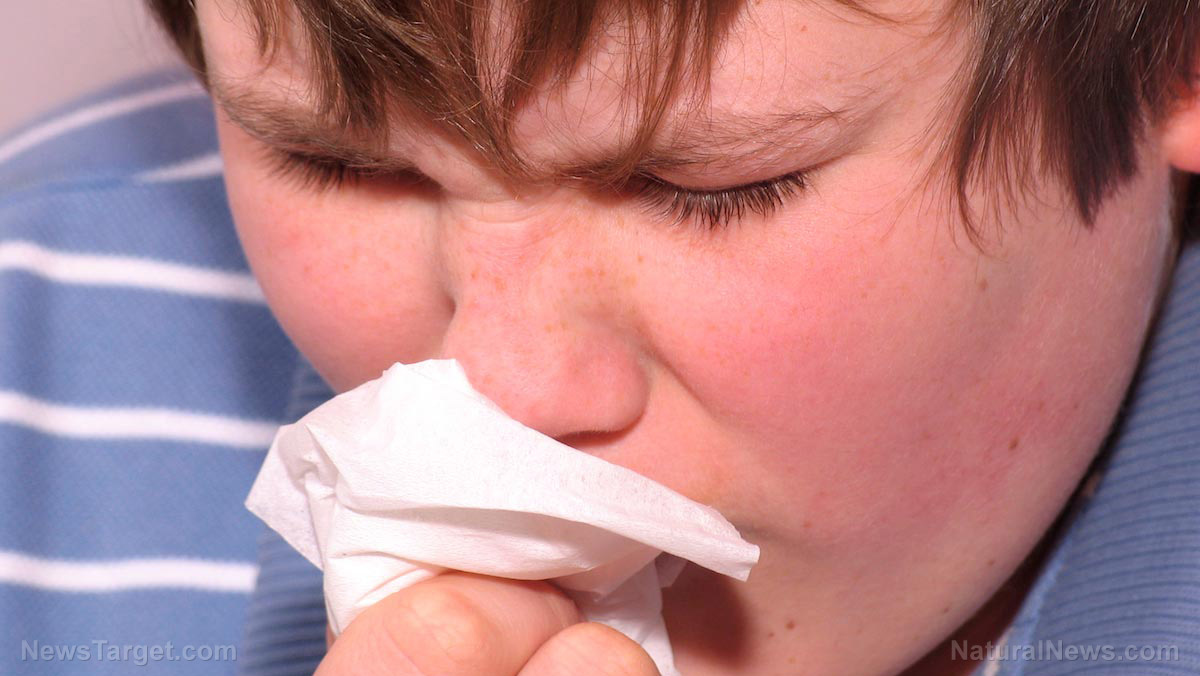Mold in Florida school sickens 700… is your home air safe to breathe?
10/09/2017 / By Rhonda Johansson

In the aftermath of Hurricane Irma, school boards across Florida are focused on assuring parents and children that their infrastructures are safe. Superintendents have stated that most schools suffered only minor to moderate damage, despite many buildings still having no power. Parents have been told that schools will reopen their doors once Florida Power & Light (FPL) issues a power-restoration timeline — but there has been no word on when that will be. All the same, parents of children studying in Broward County should take special care in where they are sending their kids.
This year marks the fourteenth year after a grand jury ordered Broward County to gain the upper hand of the mold that has been consuming its school buildings. Even so, the district has been seeing little to no change. Air quality reports and complaints filed by multiple school boards since 2003 revealed that in around 4,000 work orders made to fix leaky roofs, a third took three months to “fix,” with 100 cases taking at least a year to even be looked at. Moreover, 25 of the orders for mold or mildew were still unresolved months to years after they were filed.
Confronted with these findings, school board officials say that these numbers are misleading. Multiple work orders could be submitted for the same problem and these records are not tracked in any central system. It is possible, they argue, that a redundancy could have occurred.
All the same, more than 700 teachers, cafeteria workers, and janitors in Broward County schools have complained for more than two years of the substandard conditions of the district’s buildings. The condition has gotten so bad that the Broward County Teachers Union has expressed its intent to bring in outside experts to inspect their classrooms.
Broward County represents one of our country’s largest public school systems and teachers are concerned about the negative effects mold may have, or is having, on their wards. These professionals claim that they have filed complaints about mushrooms and spores growing in their classrooms since 2015 — only to fall on deaf ears.
Written explicitly in their petition is that the mold is causing headaches, rashes, asthma complications, sinus issues, and itchiness among employees and children.
Molds like wet, damp places. We breathe in the fungi everyday but continuous exposure to the mold spores can lead to an assortment of adverse effects. The most common health effects from mold contamination include allergic rhinitis, asthma, and hypersensitivity pneumonitis. Those with a compromised immune system may also develop more serious respiratory conditions. (Related: Household Mold may Promote Asthma and Colds.)
“If you’ve got people that are off work all summer long and they’re feeling better and they’re breathing better and they get back to school and they’re feeling sick, that’s got to be a sign of something,” Anna Fusco, President of the Broward Teachers Union told the Daily Mail.
She added: “I have schools telling me they’ve got mushrooms growing out of air vents, spores in students’ desk, spores on musical instruments, spores coming out of the cracks in the floor, on furniture, on walls, in the halls.”
And Broward County may not be the only one suffering from this problem. Schools in Miami-Dade have also complained of a worrying mold problem. Dwayne Turner, a security guard at the Thomas Jefferson Middle School in North Miami-Dade told the Miami Herald that he has had congested breathing for more than two years because of mold contamination. Scores of other employees have also reported health problems associated with mold. And while their incidence reports were properly filed and “taken note” of, school administration refused to do anything.
Broward Schools spokeswoman Tracy Clark issued a written statement in response. She says that the district is “committed to providing safe and healthy learning environments for students and employees.” She urges any staff member to immediately notify their school board or on-site maintenance team of their concerns.
Read more stories like this on Research.news.
Sources include:
Tagged Under: asthma, Broward County, child health, disaster aftermath, Florida, health, Hurricane Irma, miami-dade, mold, mold contamination, respiratory problems, schools, weather




















